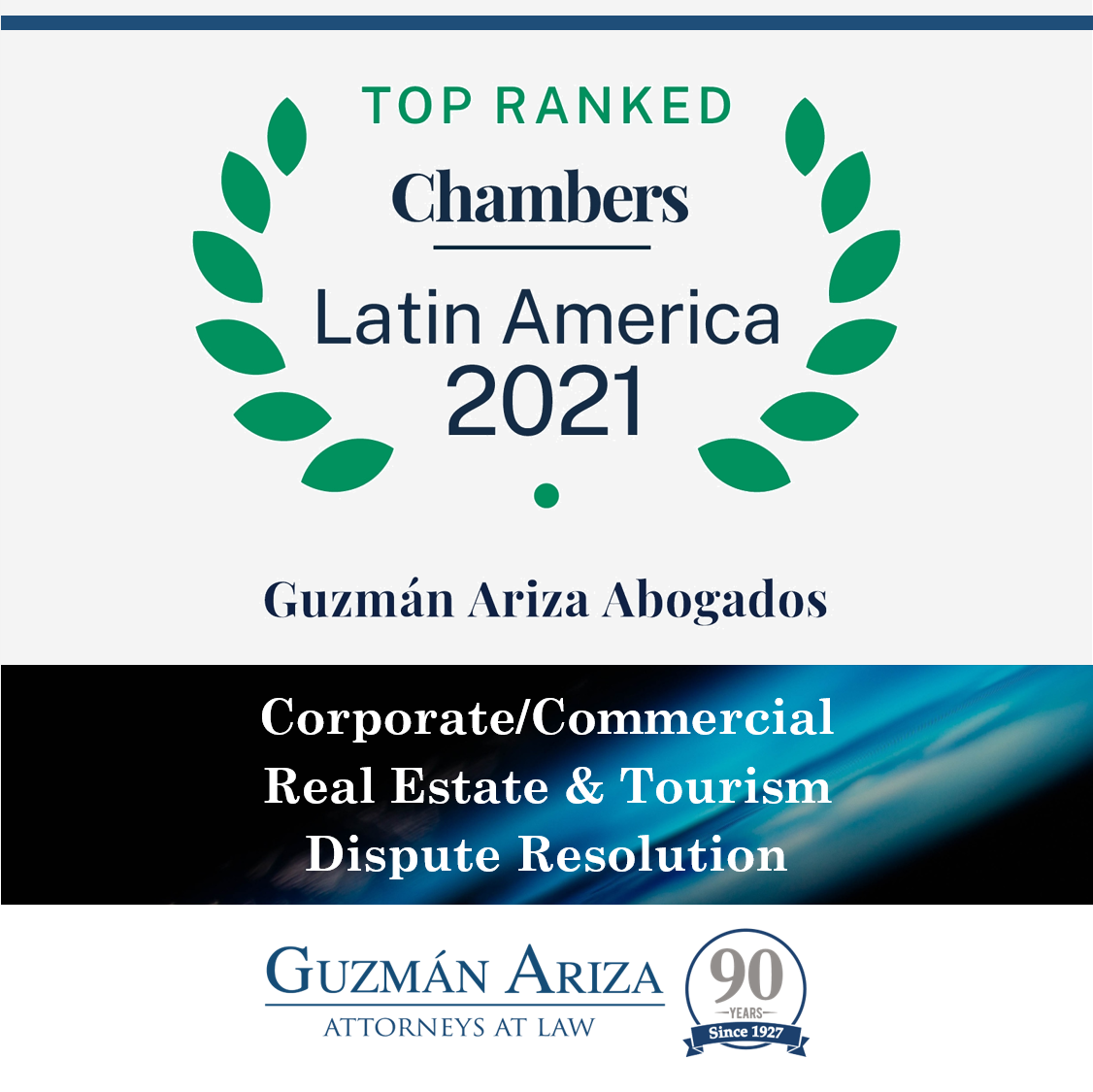We are proud to announce that we have been recognized again this year by Chambers and Partners in their Latin America Guide for 2021 as a top-ranked firm in the Dominican Republic, in the areas of Corporate/Commercial, Real Estate & Tourism and Dispute Resolution.
What do they say about our ranked practices?
On Corporate/Commercial they highlight our “noteworthy practice, [which] debuts in these rankings, (…) [and] handles company incorporations, restructuring and M&A transactions, in addition to corporate and acquisition finance. Also advises on free trade zone regulations and tax implications of transactions.” Clients appreciate that “the team are very communicative and always respond to emails and phone calls,” adding: “They are very knowledgeable and help us understand the law from the Dominican perspective. They are also reliable and a pleasure to work with.”
On Real Estate & Tourism, “Powerhouse practice group with a longstanding tradition advising on complex real estate transactions and the development of tourism projects. [its] Strong team of highly experienced lawyers stands out for their breadth of expertise, which ranges from counseling hotel groups on day-to-day operations to project financing and acquisition deals. Provides further counsel on permitting and licenses, as well as environmental compliance.” Clients report that Guzmán Ariza Abogados is the best law firm they have worked within this area, with one source further praising that “they remain in contact with us 24/7 and provide a high-quality legal service.” Another client is quick to highlight the firm’s multinational vision and “their experience in the wider tourism market, not just in the Dominican Republic.”
On Dispute Resolution, our “Experienced conflict resolution team (is) usually found representing real estate developers, as well as tourism and hospitality clients in civil and commercial litigation, as well as bankruptcy proceedings. A client highlights “the excellent quality service that they provide,” while another says: “I always obtain what I need accurately and on time.”
How about our ranked individuals?
Our top-ranked individuals include our managing partner, Fabio Guzmán Ariza, who was recognized again this year as a senior statesperson in Real Estate & Tourism for his “(…) longstanding career in the real state and tourism field”. One client simply comments: “He is brilliant.”
Partner Julio Brea Guzmán also in Real Estate & Tourism. Their editorial review points out that “(…) Brea-Guzmán offers broad experience advising on real estate transactions and disputes” A client comments: “He is very well qualified, proactive, detailed and straight to the point.”
Partner Fabio Guzmán Saladín was ranked in the Corporate/Commercial category, as an up-and-coming individual, for being “a brilliant lawyer: very intelligent and intuitive,” a client remarks. Guzmán Saladín is known for advising clients on free trade zone regulations, company incorporations and corporate restructuring.
And special counsel Giselle Pérez Reyes was ranked in the environment category, for her experience “(…) on the environmental aspects of real estate and tourism projects (…)”. A source reports that “she does a great job; she manages her work well and generates confidence in the client.”


